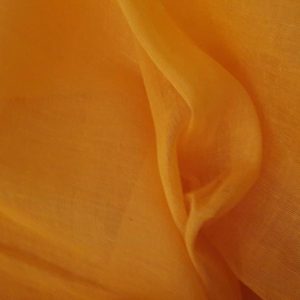
The Turban shop birmingham is more than a piece of fabric; it is a symbol of culture, tradition, and personal identity. Worn by people of diverse backgrounds across the globe, the turban holds significant historical and spiritual importance. At its core, the material of the turban determines not just its aesthetic appeal but also its comfort, functionality, and longevity. For anyone looking to purchase turban material, understanding the options available is crucial. This article explores the various aspects of buying turban material to ensure you make an informed decision.
Understanding the Cultural Context
Before delving into the material specifics, it’s important to appreciate the cultural and religious significance of the turban. For example, in Sikhism, the turban (or dastar) is a sacred emblem of faith and commitment. In many Middle Eastern and African traditions, it serves as a practical accessory to shield against harsh climates while showcasing social or religious affiliations. Each culture has distinct requirements and preferences for turban materials, making it essential to understand the context before purchasing.
Key Factors to Consider When Buying Turban Material
- Fabric Type
Turban fabrics come in a variety of materials, each offering unique qualities.
- Cotton: Lightweight, breathable, and easy to manage, cotton is a popular choice for everyday wear. It absorbs sweat effectively, making it ideal for hot climates.
- Silk: Known for its luxurious sheen and softness, silk is perfect for ceremonial or special occasions. However, it may require more care due to its delicate nature.
- Polyester blends: Durable and wrinkle-resistant, these fabrics are practical for those seeking low-maintenance options. However, they may lack the softness and breathability of natural fabrics.
- Muslin: Favored for its lightweight and airy texture, muslin is a go-to choice for individuals in warmer regions.
- Georgette and chiffon: These flowy fabrics add an elegant touch and are often chosen for fashionable or modern interpretations of the turban.
- Length and Width
Turban material is typically sold by length and width. The dimensions required vary depending on the style and method of tying. For example:
- Sikh turbans often require 4 to 6 meters of fabric for traditional styles like the double-patti or round turban.
- Middle Eastern keffiyehs and shemaghs may need shorter, square-shaped fabrics.
- Fashion turbans might use significantly less fabric, focusing more on decorative wrapping.
- Color and Design
Color holds symbolic significance in many cultures. For Sikhs, white represents purity, saffron signifies courage, and blue is associated with valor. Similarly, Middle Eastern turbans often incorporate neutral tones or traditional patterns. When selecting material, consider the occasion and the message conveyed by the color or design.
Some turban materials feature intricate patterns, embroidery, or prints. These embellishments can add a touch of sophistication or cultural flair, but they may also affect the fabric’s flexibility and tying ease.
- Comfort and Climate
The material’s breathability, weight, and texture should align with the wearer’s environment. Lightweight, moisture-wicking fabrics are essential for hot and humid climates, while thicker, insulating materials are better suited for cooler temperatures. Comfort should be a top priority, especially for turbans worn daily. - Maintenance and Durability
Caring for turban material is another factor to consider. While cotton is easy to wash and maintain, silk and other delicate fabrics might require dry cleaning or specialized care. Polyester blends and synthetic fabrics, on the other hand, are durable and less prone to wear and tear.
Where to Buy Turban Material
The growing demand for turbans has led to an increase in specialized stores and online platforms offering high-quality materials. Here are a few avenues to explore:
- Local Fabric Stores
Visiting a fabric store allows you to feel the texture and weight of the material firsthand. Many stores cater to cultural and religious needs, stocking fabrics in traditional colors and patterns. - Online Retailers
E-commerce platforms offer convenience and variety. Websites like Etsy, Amazon, and niche cultural stores often feature an extensive range of turban materials. Ensure you read reviews and check return policies before making a purchase. - Specialty Stores
Stores dedicated to cultural attire often stock premium turban fabrics. These establishments understand the specific requirements of their customers and may offer personalized recommendations. - Community Sources
In some cases, local religious or cultural communities might have connections to reliable suppliers. These sources can provide authentic materials that align with traditional practices.
Tips for a Successful Purchase
- Do your research: Familiarize yourself with the type of turban you intend to wear and the material best suited for it.
- Prioritize quality: Cheap fabrics might seem appealing but could compromise on durability and comfort.
- Ask for samples: If purchasing online or in bulk, request fabric swatches to evaluate the texture and quality.
- Consider tailoring: Some fabrics may require hemming or finishing to prevent fraying.
- Budget wisely: High-quality materials like silk may be more expensive, but their elegance and durability often justify the cost.
The Future of Turban Material
As fashion evolves, so does the turban. Designers are incorporating sustainable fabrics like organic cotton and bamboo into their creations, catering to environmentally conscious consumers. Additionally, the rise of customized and pre-tied turbans reflects modern convenience without compromising tradition.
Conclusion
Choosing the Punjabi Wedding Pagri in Birmingham is an art that combines cultural awareness, personal preference, and practical considerations. Whether you’re looking for a breathable cotton turban for daily wear or a luxurious silk piece for a special event, taking the time to understand your options will ensure a meaningful and satisfying purchase. By investing in high-quality turban material, you honor the rich heritage it represents while embracing a style that is uniquely yours.







